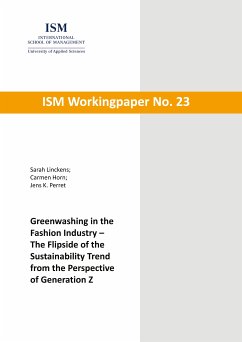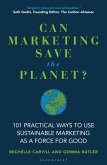The sustainability trend of recent years is reflected in society's growing environmental awareness and the increasing promotion of green products and services in the market. The flip side is that most advertisements and green branding originate from companies that still have a negative impact on the environment. Therefore, it is necessary to understand how greenwashing marketing campaigns are perceived despite increasing environmental awareness in society. This study answers how greenwashing is perceived, whether the perception differs depending on the degree of environmental consciousness, and which effects the perception has. In order to answer these questions, a qualitative study via expert interviews with participants belonging to Gen Z has been conducted, making specific reference to the "Conscious Spring" greenwashing campaign by H&M. The qualitative content analysis showed that the majority of participants recognized greenwashing through misleading word choice and contradictory actions that are advertised in the campaign. Nevertheless, there were also interviewees who were misled by the campaign. The campaign had an effect on the participants' attitudes towards the brand, both on their feelings and beliefs about the brand, as well as on their behavioral intentions. The findings are largely used to understand the advertising impact of greenwashing, but they will also be helpful for sustainable clothing companies in creating green campaigns or for NGOs working to combat greenwashing and educate consumers.
Dieser Download kann aus rechtlichen Gründen nur mit Rechnungsadresse in A, B, BG, CY, CZ, D, DK, EW, E, FIN, F, GR, HR, H, IRL, I, LT, L, LR, M, NL, PL, P, R, S, SLO, SK ausgeliefert werden.









